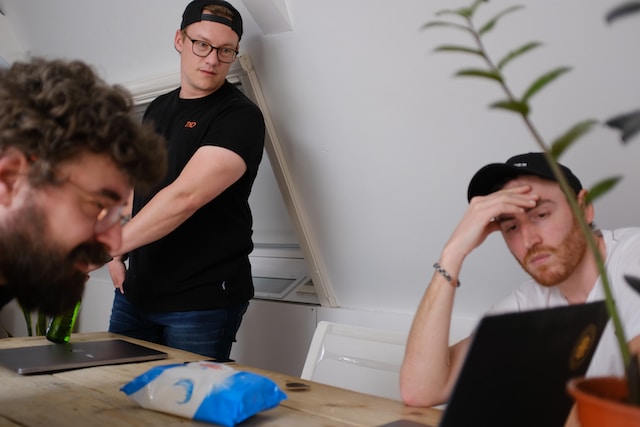
“Those who know how to embrace criticism gracefully have mastered exceptional art. It also shows their high level of emotional intelligence.“
Seeking Criticism is Essential for Growth
We all seek guidance and feedback in our daily lives. Be it personal or professional. We love to hear praises and a pat on our backs, and it’s necessary whenever we start something new. It gives the much-needed motivation. However, if someone comes up and tells us our mistakes or shares their point of view, which might differ from ours, our first reaction is to discard them.
There’s a subtle difference between genuine feedback and unnecessary criticism. Many like to criticize because they are good at finding fault in everything. There is little meaning to it. Interestingly, both the receiver and giver know the futility of extreme feedback. Hence we should not lose our peace of mind whenever this happens. How can we do it? Simple, learn to stay neutral and don’t take it personally. Especially if you are doing something creative, you must seek criticism; it’s the only way to get better at what you do quickly.
Those who know how to embrace criticism gracefully have mastered exceptional art. It also shows their high level of emotional intelligence.
Story Time

After hearing many of them in the past few years, I wanted to start recording my own Podcast. Finally, I took the plunge and released the first episode on May 13th. A monologue in which I talk about several things instead of focusing on one topic. As you do, whenever you try something new, such as cooking a dish or going on a date, you want to showcase all possible talents you think you possess. The result is that the cooked dish may not taste as great as you expected. And, your date might think you are full of ego or plain stupid. However, the good thing is that at least you tried something new, and gradually you will get better at it.
Feedback #1
I share a teaser for the channel, a short clip of fewer than two minutes. Since I take many pauses while speaking, I remove them during editing to make the teaser sound fast. I received a couple of feedback that the teaser sounds hurried and don’t allow the listener to pause and think. That is a valid point, and I accept it.
While editing the whole episode, I overcompensate and insert intentional pauses to allow listeners to ponder and think. Interestingly, this time I get feedback that the pauses somehow break the flow and that I should keep them at a minimum. Again legit feedback. In both cases, the people sharing their views have good intentions, and their feedback is genuine.
Feedback #2
Let me share another example. In the first episode, I talk about my top 5 favorite podcasts. I explain what they are and what themes they cover. So I end up mentioning the word “Podcast” 100 times (Just exaggerating, I haven’t counted.) Someone rightly points out that the term is used too many times. That is, again, a valid point, and I accept it. Even I felt the same while editing.
I’m receiving good responses; some people are congratulating me and saying all the best, only to boost my morale. I’m not complaining, either. Suddenly my WhatsApp shows a message from a new number; we both are part of a group but have yet to interact. The message praises the episode and tells me that I’ve explained the term so well that even a layperson who doesn’t know about it can easily understand. Fair enough, I accept the point; you repeat certain words when discussing something specific.
Was the previous feedback wrong? or unnecessary criticism? Nope, It was spot on. However, every human has a different point of view. No one is wrong. One can only understand it if they start thinking objectively. I learned something from all those who spent time listening to the episodes and teasers and, most importantly, shared their opinions. They all mean well, and I’m grateful.
Why this Story?
The story perfectly explains why feedback and criticism are super important. Criticism can work well, not just at a personal level, even if you lead a team to find a solution by brainstorming. Studies prove it, as long as you ensure that it is constructive. We must remember that criticism is not always negative but most productive. It doesn’t mean that you criticize without any reason or keep self-criticizing for tiny little things. That can be detrimental. However, it is essential that we must learn to accept criticism gracefully.
Does Criticism Kill Creativity?

Yes, criticism can be detrimental at times. A few folks always love to criticize without suggesting better ways, and it can kill great innovative ideas. I read this interesting article by Prof Roberto Verganti & Don Norman, which challenges the notion that criticism kills creativity. They summarize the article with this statement.
“Criticism becomes the most advanced form of creativity when conducted with curiosity and respect. It can be fascinating, passionate, fun, and always inspiring. Let us combine “Yes, and” with “Yes, but” to create the constructive and positive “Yes, but, and.”
~ Prof Roberto Verganti & Don Norman
Wrapping up
Seeking criticism, offering feedback, and gracefully accepting them are integral to growth. The only way to do it is by keeping an open mind, developing critical thinking and learning not to take things personally. Criticism generates ideas, and that is what keeps the world moving forward. (after all, I got the topic of this month’s blog post from some genuine feedback.) Keep seeking criticism and sharing with those who are ready to accept them.
If you have yet to hear the Podcast, Do listen and let me know what topics you want us to cover in future episodes.


Well said …it happens with all of us at some point